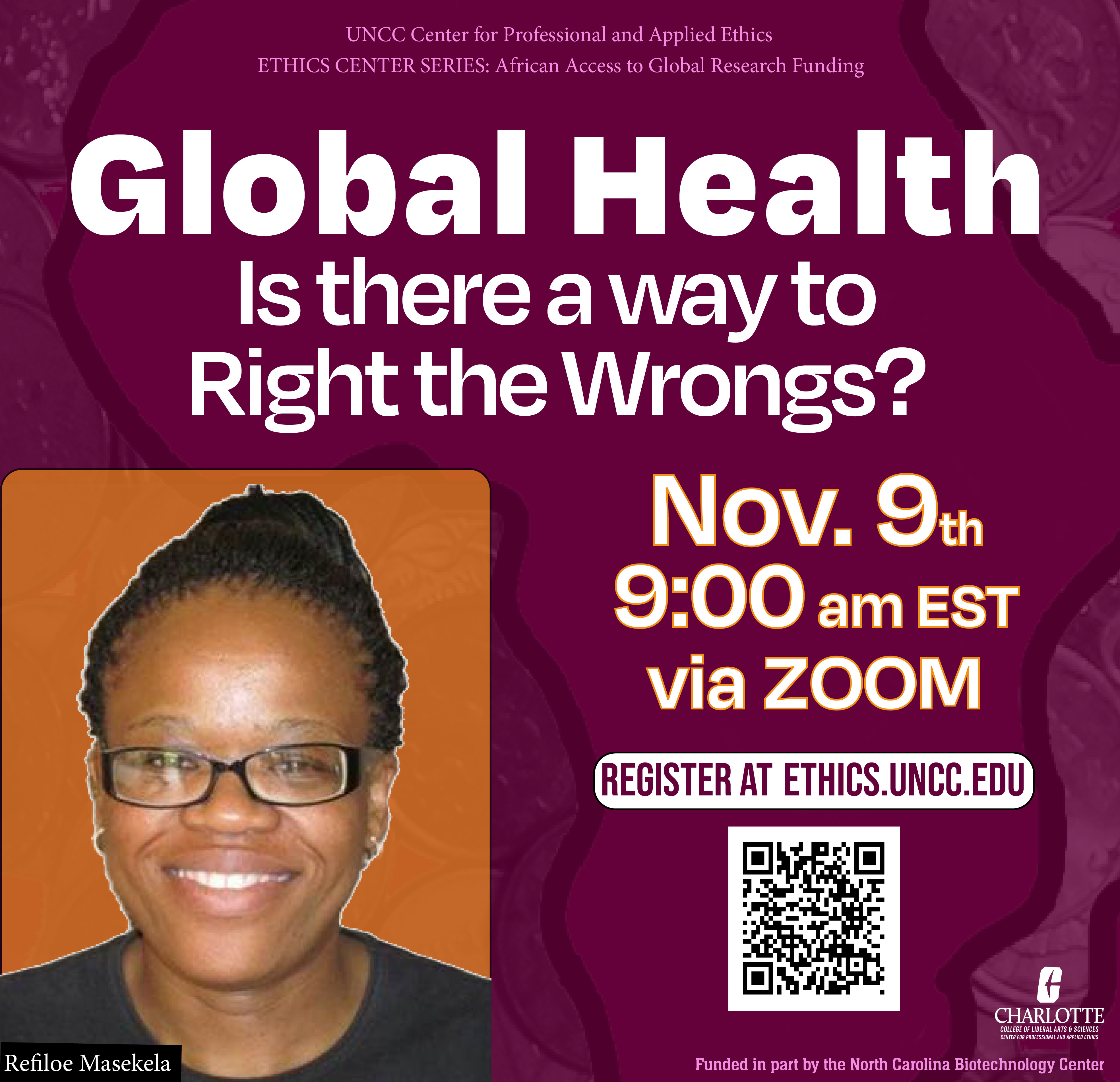
-
Prospective Students
-
Faculty and Staff
-
Current Students
-
Alumni and Friends

Nov 9 (Tuesday), 9:00am ET: Refiloe Masekela (Head Dept. Pediatrics and Child Health, U. KwaZulu Natal, Durban South Africa) presents as the first speaker in our series, presents as part of our series, African Access to Global Research Funding, on “Global health: is there a way to right the wrongs?
---> Zoom Registration: https://uncc.zoom.us/meeting/register/tJUvcO-tqDgjGdwMFBN-CTe4_zDFYowyhJ2t
Abstract: Global health has been defined as an area for study, research, and practice that places a priority on improving health and achieving equity in health for all people worldwide. Recently, these definitions have been challenged with equity being placed at the centre of the definitions between relationships between Northern and Southern partners in global health. The focus of my talk will be to look at the current research ecosystem in global health research, discuss the roots of the current/past inequities in Global Health and propose practical mechanisms to achieve a more just system within these North-South collaborations, with a focus of Africa as an exemplar.
About the series: As the Covid-19 pandemic has made very clear, the global health system is marked by deep inequities. For example, while over half of eligible adults in the U.S. are fully vaccinated, that number is in the low single digits across most of the global South. These inequities also occur at the level of research. For example, one study found that the percentage of journal articles about trials in low and middle income countries (LMICs) with first authors from those countries declined from 1990-2013. Another found that African authors were underrepresented in research done in Africa; most of those African authors who were represented had an affiliation in an Anglophone country. A third found that 20% of papers about Covid-19 in Africa had no African authors. We propose to explore this disparity in the representation of researchers from LMICs in medical research, both to draw attention to it and to explore its causes and possible solutions. Taking advantage of the affordances of the online format, we hope specifically to include events in which African and other LMIC researchers can speak to the exclusions and disparities they face in their own research. Talks will be archived on the Center's YouTube Channel.
